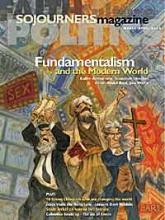The once mighty energy trader has become everyone's favorite whipping boy. Unjustly so, I say. There's no shame in a little arrogance, greed, and financial chicanery in the business world.
Enron was born in 1985 when Houston Natural Gas merged with InterNorth, a natural gas company based in Omaha, Nebraska, forming a system with about 37,000 miles of pipeline. In 1989, Enron started trading natural-gas commodities and became the world's largest buyer and seller of natural gas. The company soon became the premier electricity marketer as well, then directed its seemingly Midas touch to such commodities as weather derivatives, bandwidth, pulp, paper, and plastics. Scaling to the seventh-largest corporation in the United States, with a market capitalization of nearly $60 billion, Enron was an investor's dream.
Okay, so the company fudged its numbers. But Wall Street played the happy fool as long as Enron continued to report billions of dollars in steadily upward earnings. Along the way, more than a few financial analysts raised doubts about the veracity of the numbers that Enron was posting. Finding the company's real revenueas opposed to reported revenuewas akin to locating the hidden bean in a shell game. Nothing unusual here. The financial markets of late work on a simple system greased by consensual delusion: We can all make money on the emperor's stunning wardrobe until some damn fool yells out "naked" and ruins the fun.
It's reasonable to expect that an independent accounting firm would voice the bare truth. But Arthur Andersen was bringing in millions of dollars of private consulting revenue from Enron while also collecting millions for auditing the company's books. I'm sure it was just an oversight; it's easy to lose count with so many zeros floating around.
Read the Full Article
